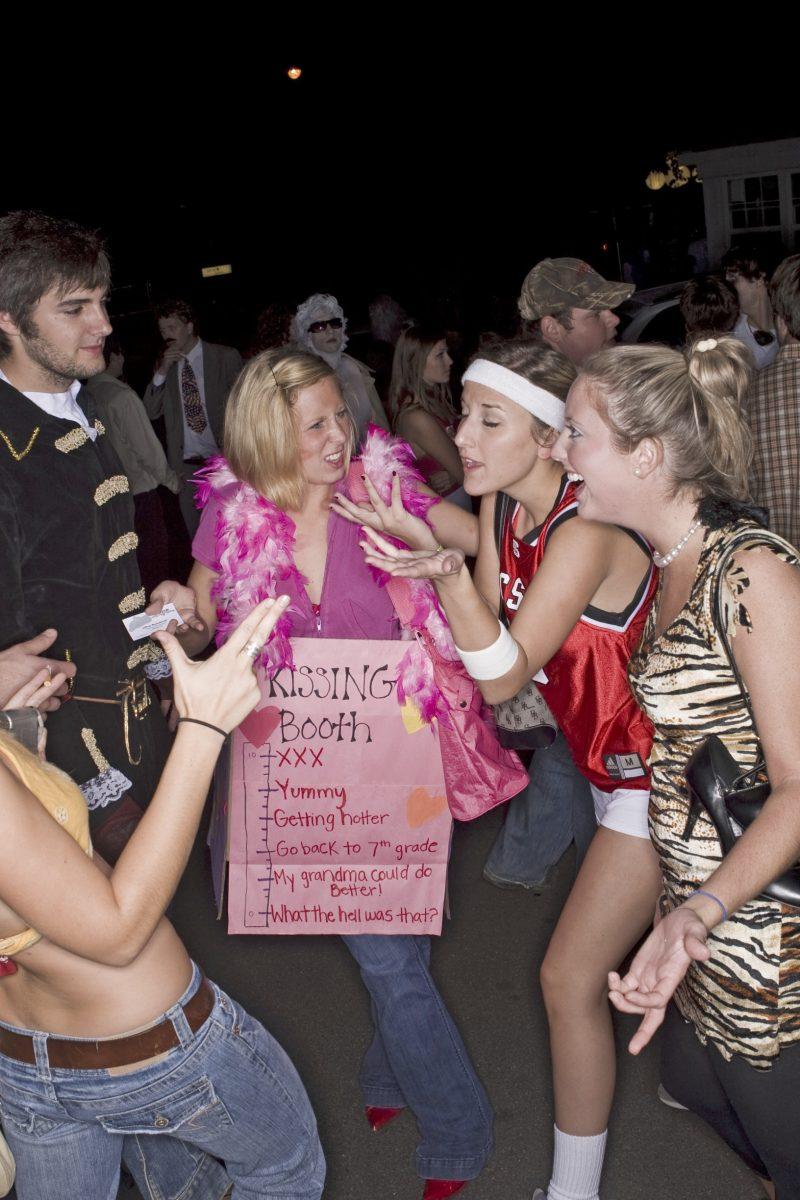
Restrictions may hinder business
The University’s parking limitations on Halloween may not significantly impact Hillsborough Street businesses, but Mitch Hazouri, owner of Mitch’s Tavern, said the University’s “grandstanding” in trying to restrict patrons from Hillsborough Street is hurtful.
“The kind of businesses the University really needs are most hurt by this,” Hazouri said.
The University’s administrators are acting “childish” and with “nerve” to think that by restricting outsiders from entering the University, they can control the situation on Hillsborough Street, Hazouri said.
The University announced Tuesday that it would restrict many parking lots on campus to only those with valid University IDs in an effort to keep the Hike an exclusively student-based event.
According to Hazouri, most of his customers are not students, but other Raleigh residents.
“It’s the outsiders we need to have a busy street,” he said.
The University’s press release about parking restrictions will do more to drive people away than the parking restrictions themselves, Hazouri said.
Most of the people who will attend the Hike, he said, are not likely to park on campus.
In the past, people have parked on adjacent streets, and Hazouri said most of his customers do not know campus parking is open at night.
Hazouri said he was offended in part because people coming to N.C. State to use D.H. Hill Library or other establishments on campus frequently use parking spaces that belong to Hillsborough Street businesses.
Israel McGhee, manager of Charlie’s Grilled Subs, said they have plans to stay open to 2 a.m. for the Hike, but that the parking restrictions would likely cut down on business.
“From a business perspective, it’s not beneficial,” he said. “But I guess if it’s a problem, it needs to be taken care of.”
Gerardo Romero, a senior in textile brand management, said the University’s announcement has led to confusion from people coming from out of town.
“There’s a misconception that people will think their friends or people from out of town aren’t going to be allowed in,” he said.
Hazouri described the University’s efforts as a political play that was “blown out of proportion.”
“The University is very sensitive to politics,” he said.
The police that work to secure Hillsborough Street should welcome students, Hazouri said, but their approach is too harsh.
With Raleigh Police’s zero-tolerance policy, he said a student caught for something that would normally bring them a citation could now result in an arrest or added punishment from within the University.
Hazouri said the city of Raleigh sees the Hike as competition to downtown events.
According to Hazouri, the Hike is not an event, but a gathering of people without common purpose.
He said he understands the urge for police presence, and that customers would probably appreciate it, but he disagreed with the Raleigh Police’s tone.
“Most people appreciate and accept the responsibility that the University has for the safety of its students,” he said.
While large celebrations, like those after a major athletics win, can be disruptive, Hazouri said that is because of groupthink, which doesn’t happen in situations like the Hike.
He also said the city has had a part in the University’s efforts to restrain the Haunted Hike, as he said there is limited appeal in downtown Raleigh, where the city has to spend thousands to get participants for events. The Haunted Hike last year, he said, needed little promotion and few incentives.
The underlying problem with Hillsborough Street, Hazouri said, is that it’s struggling, and the University is “blunting the market.”
McGhee said Charlie’s has had less business this year than it has in the past, so while the Hike could bring in a lot of money, the day-to-day operations are much weaker.
“Business is a lot slower on Hillsborough Street than it was a year ago,” he said.